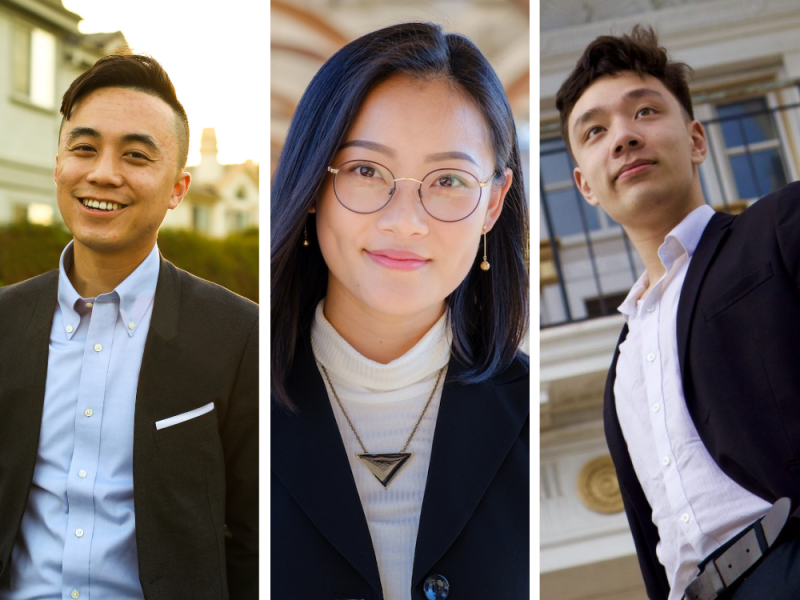This is the first episode of By The People, The Bay podcast’s new series highlighting the way democracy shows up in the places around us, and how we can all plug in.
One way to change your hometown? Run for office.
That’s what Alex Lee, James Coleman, and Lucy Shen decided to do in the 2020 elections. All three are among a number of young, queer candidates of color who ran in local races this year.
They’re from different parts of the Bay Area – with unique relationships to their hometowns – but they all found themselves looking for change and diving into politics.
Coming Home and Breaking Barriers
A number of young, queer people of color are “winning seats in towns that have not necessarily seen that sort of representation before,” says KQED Silicon Valley reporter Adhiti Bandlamudi. She’s been tracking Lee, Coleman and Shen’s progress, and notes that not only are all three of them Asian American, but they’re running for office in Bay Area cities “where they are sort of making history by even running.”
Lee, Coleman and Shen are fairly united in their politics as “young progressives that have really liberal-leaning policies,” says Bandlamudi — running on platforms like housing affordability, demilitarizing the police and the removal of school resource officers. “These are all platforms that are new and different, that have not necessarily been the status quo in these areas.”
Another unifying factor? All three candidates are all seeking office in their own hometowns — the places to which they’ve returned after varying degrees of time away.
All three candidates expressed having experienced some form of backlash over their identities, says Bandlamudi, but stress that it’s been met by “how much support they received from their community, from people who are neighbors, who they grew up around, from their former teachers.”
“They all talked about knocking on doors, talking to folks, and playing up the fact that they all grew up in the cities that they were running in,” says Bandlamudi.
Meet Alex Lee, CA Assemblymember-elect, District 25
In November, 25-year-old Lee became the youngest state legislator in almost a century, running to represent the area encompassing Fremont, Santa Clara, San Jose, Milpitas and Newark. He’s also now the first openly bisexual state legislator in California history.
“Despite being a legislative staffer for the state Assembly and being very intimately acquainted with the legislative process, or even the legislators themselves, I was in many regards an outsider,” says Lee.

